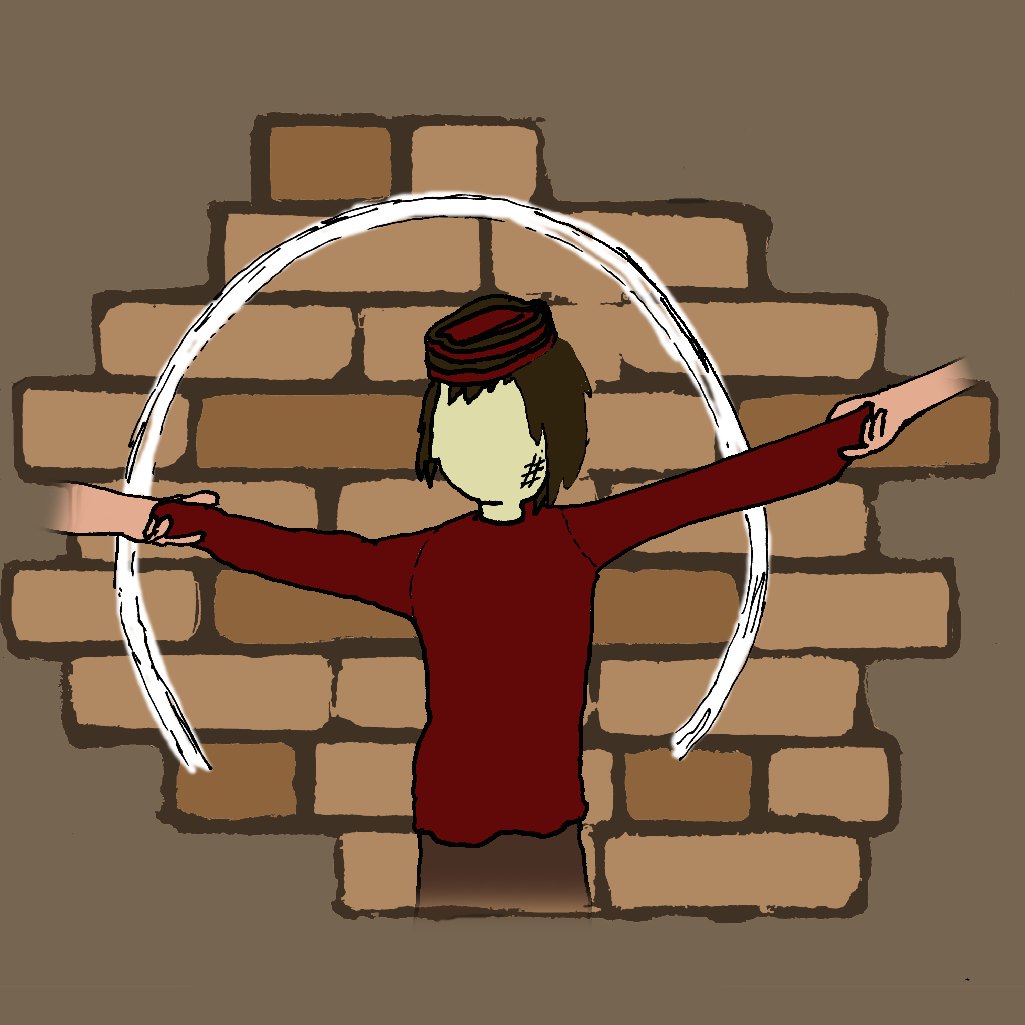- Theatre: Accidental Death of An Anarchist
- Theatre: Ein Komisches Talent
- Theatre: Gaslight®
- Theatre: Hansard
- Theatre: Home, I'm Darling
- Theatre: How to Succeed in Business...
- Theatre: I Love You, You're Perfect, Now Change
- Theatre: The Cat's Meow
- Theatre: The Crucible
- Theatre: The Duchess of Malfi
- Theatre: The Glad Game
- Theatre: The Last Noel
- Theatre: The Revlon Girl
- Theatre: Things I Know To Be True
- Theatre: Uncle Vanya
- Auditions: Audition for The Last Noel
- Auditions: Audition for Youth Theatre
- Auditions: Audition for Youth Theatre
- Auditions: Audition for The Cat's Meow
- Auditions: Audition for Things I Know To Be True
- Auditions: Audition for The Glad Game
- Auditions: Audition For Uncle Vanya
- Auditions: Audition for Hansard
- Auditions: Audition for The Duchess of Malfi
- Auditions: Audition for Accidental Death of An Anarchist
- Auditions: Audition for How To Succeed In Business...
- Open Evenings: Open Evening
- Open Evenings: Open Day
- Open Evenings: Open Day
- News: NANDA Awards 2025
- News: Youth Theatre Shines at NANDA Youth Fest...
- News: 2025/26 Season
- News: Under the Limelight: Backstage at the Vo...
- News: Plea for century-old theatre after drop ...
- News: 100-year-old Nottingham theatre ... laun...
- News: Lydia Marchant Came to Visit
- News: NANDA Awards 2024
- News: Discount Car Parking Offer
- News: 2024/25 Season
- News: Emmy win for our patron Matthew Macfadye...
- News: Golden Globe win for our patron Matthew ...
- News: Discount Food Offer
- News: NANDA Awards 2023
- News: 2023/24 Season
- News: Discount Car Parking Offer
- News: Lace Market Youth Theatre on the town...
- News: NANDA Awards 2022
- News: The Queen’s Award for Voluntary Service
- News: 2022/23 Season
- News: Discount Ticket Offer
- News: Covid Precautions
- News: 2021/22 Season
- News: A Virtual Vanya
- News: Nottingham Playhouse Home Grown Bursary
- News: NANDA Awards 2020
- News: Coronavirus (COVID-19): Season Cancellat...
- News: 2020/21 Season
- News: Coronavirus (COVID-19): Season Postponem...
- News: Sad and Amazingly Funny
- News: Absurd but relevant
- News: Where Are They Now?
- News: Foyer Refurbishment
- News: NANDA Awards 2019
- News: Youth Theatre win at NANDA!
- News: Hannah and Hanna on tour
- News: 2019/20 Season
- News: Adam Penford Visit
- News: The Big Wardrobe Move - Part 1
- News: Lace Market Theatre On Tour
- News: Henry, 14, shows the desire to step in a...
- News: New Wardrobe Premises
- News: Auditorium Refurbishment 2018
- News: NANDA Awards 2018
- News: Auditorium Refurbishment
- News: Remember when women were seen as 'little...
- News: Nanda Youth Festival
- News: 2018/19 Season
- News: World War II play loved by Churchill...
- News: Modern take on Charles Dickens' horror s...
- News: Oscar Wilde's An Ideal Husband at the La...
- News: Shocking true story of last woman to be ...
- News: Alan Bennett classic The History Boys to...
- News: Pride and Prejudice at the Playhouse?
- News: Launch of New Bar
- News: Is Guys and Dolls the best ever Musical?
- News: Success at NANDA
- News: LMT to Host World Premiere of New Englis...
- News: 20th Century masterpiece...
- News: 2017/18 Season
- News: Terry Pratchett's Carpe Jugulum to be pe...
- News: Comedy classic The Ladykillers will be s...
- News: West End hit that became Meryl Streep fi...
- News: Nottingham theatre kicks off 2017 with m...
- News: An alternative to panto...
- News: The Brontë sisters were chick-lit pionee...
- News: The Weirdest Title of Any Show You'll Se...
- News: Telling Tales...
- News: Love & Death
- News: Exhibition in the Studio
- News: Latest Sound Upgrades
- News: Success at NANDA
- News: Success at NANDA Youth Festival
- News: Steve Parry: A Tribute
- News: Lace Market Theatre on Tour 2016
- News: James Dean naked and 'lots of pretty lad...
- News: 2016/17 Season
- News: 2000 Facebook Likes!
- News: Art Exhibition During "Beautiful Th...
- News: Noel Coward comedy is Lace Market Theatr...
- News: Art Exhibition During "Present Laug...
- News: Discount Food Offer
- News: Art Exhibition During "The Pitmen P...
- News: New Roof!
- News: In August the Lace Market Theatre Goes D...
- News: Good Deeds Notts: A stroke of luck as Jo...
- News: Happy Jack: On Tour
- News: Success at NANDA!
- News: Nudity Features in Alan Bennett-style Co...
- News: Success at the NANDA Youth Festival
- News: Art Exhibition During "Dead Ringer&...
- News: Poltical Comedy Play is Anecdote to Gene...
- News: 2015/16 Season
- News: Bertolt Brecht Classic at Lace Market Th...
- News: Theatre preview: Bedroom Farce at Lace M...
- News: Lace Market Theatre stages the tale of a...
- News: Lace Market Theatre's One Act Play will ...
- News: It's a White Christmas at Lace Market Th...
- News: Art Exhibition During White Christmas
- News: Donation to Nottinghamshire NUM Ex and R...
- News: Lace Market Theatre tackles John Godber ...
- News: Darkly funny play at Lace Market Theatre...
- News: Lace Market Theatre commemorates WWI wit...
- News: The World of Professional Theatre has Re...
- News: Private Peaceful Collection
- News: Discount Food Offer
- News: Possibly the best set ever!!! The back s...
- News: LMT's comic, contemporary vision of rura...
- News: The horror of WW1 told in Lace Market Th...
- News: Success at the NANDA Youth Festival 2014
- News: NANDA Youth Festival
- News: VisitEngland Tourism Superstar Awards 20...
- News: 1000 Facebook Likes!
- News: The Return of Open Mic Night
- News: Art Exhibition by Neil Duckmanton
- News: Online Booking Problems?
- News: White Christmas Early Bird Offer
- News: New Website!
- News: Anne Boleyn Opens to Rave Reviews
- News: Nottingham Post interview Gordon parsons
- News: Murder Mystery Night is Big Success
- News: Nottingham Post interview Graeme Jenning...
- News: RSC Open Stages
- News: Nottingham Post Interviews Max Bromley
- News: Discount Food Offer
- News: Costume Commissioned by the Courtald Gal...
In a new translation by Alistair Beaton, The Lace Market Youth Theatre presents...
The city burns in the heat of civil war and a servant girl sacrifices everything to protect an abandoned child. But when peace is finally restored the boy's mother comes to claim him. Calling upon the ancient tradition of the chalk circle, a comical judge sets about resolving the dispute. But in a culture of corruption and deception, who wins?
The Caucasian Chalk Circle is presented by special arrangement with Samuel French, Ltd

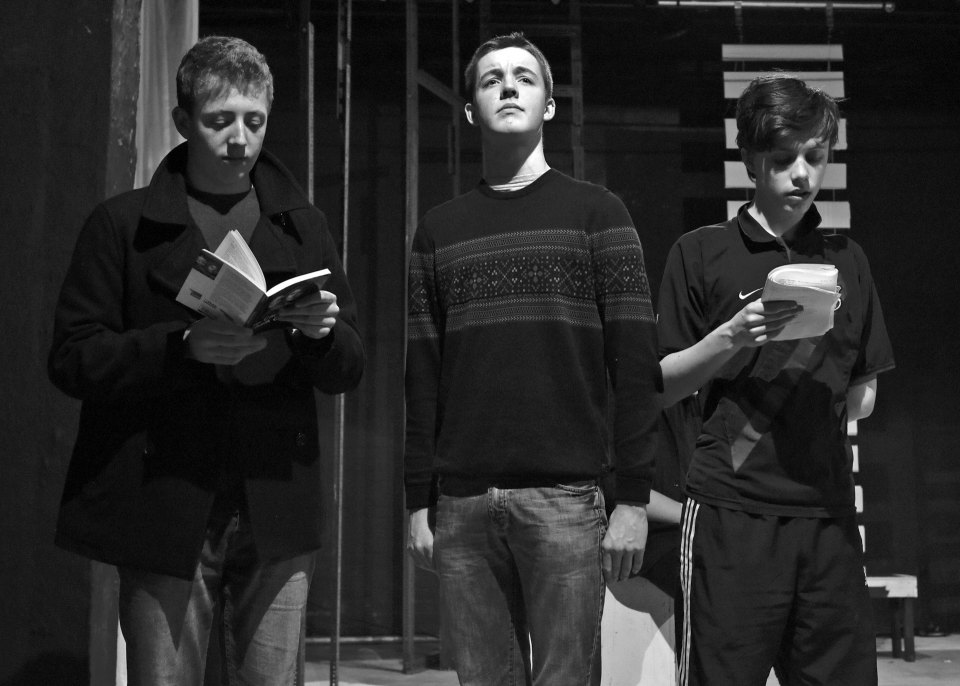

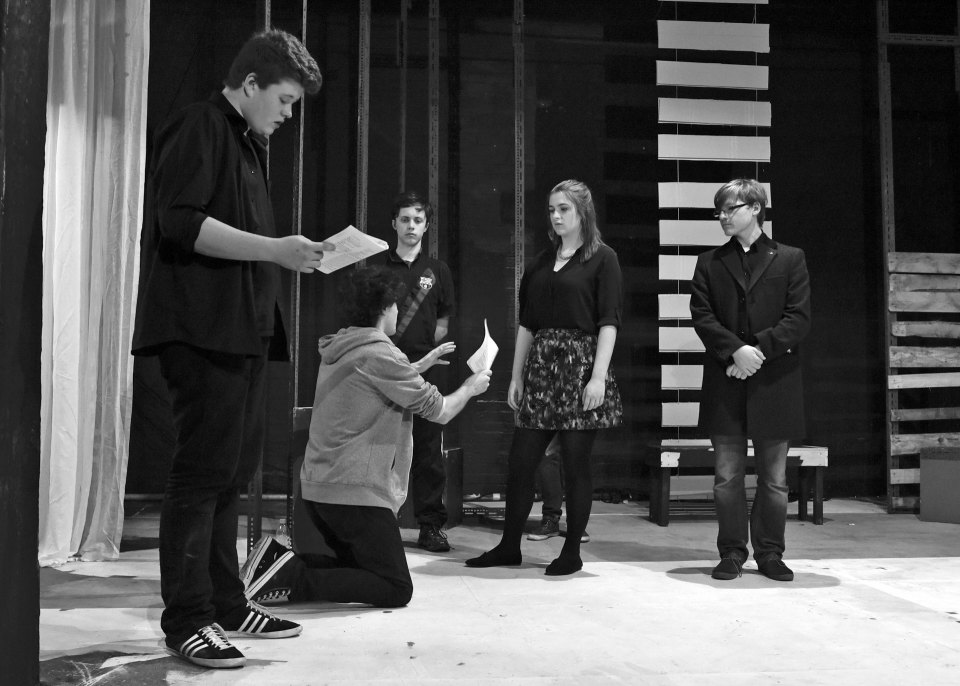
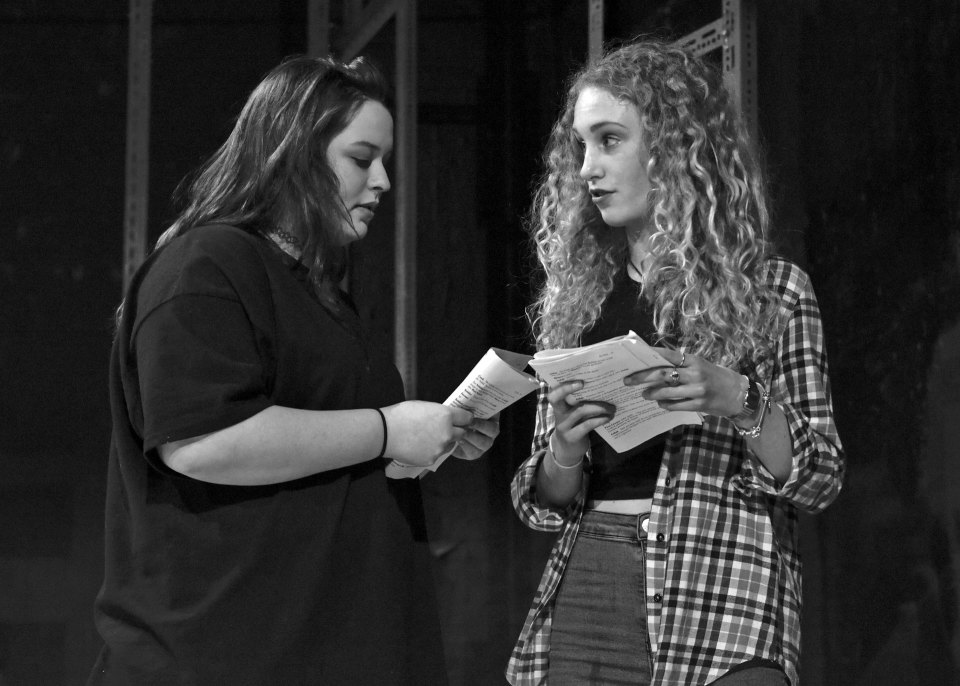



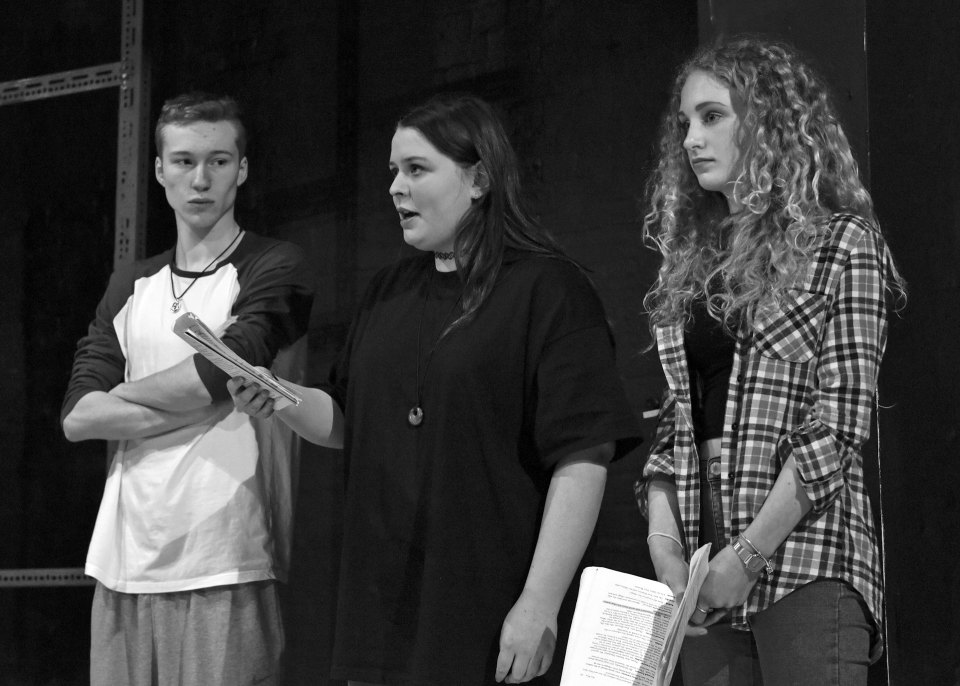
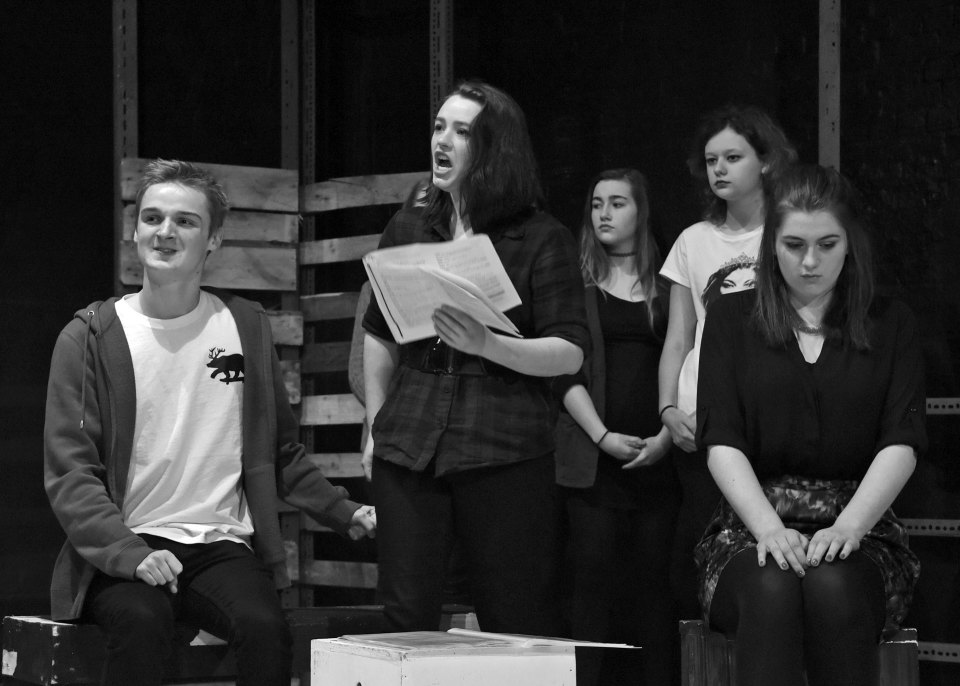
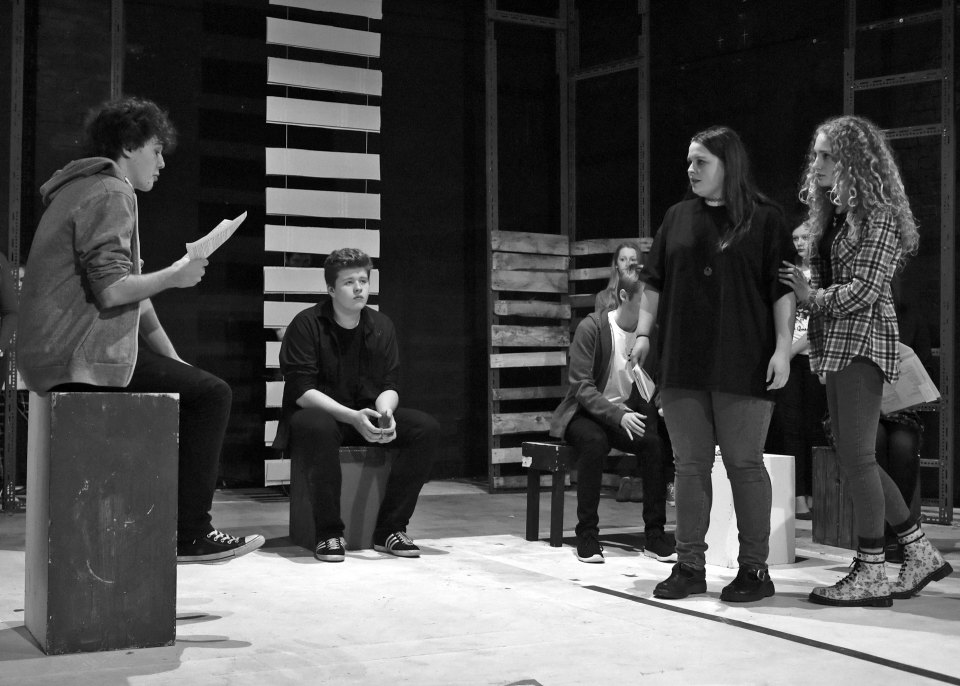
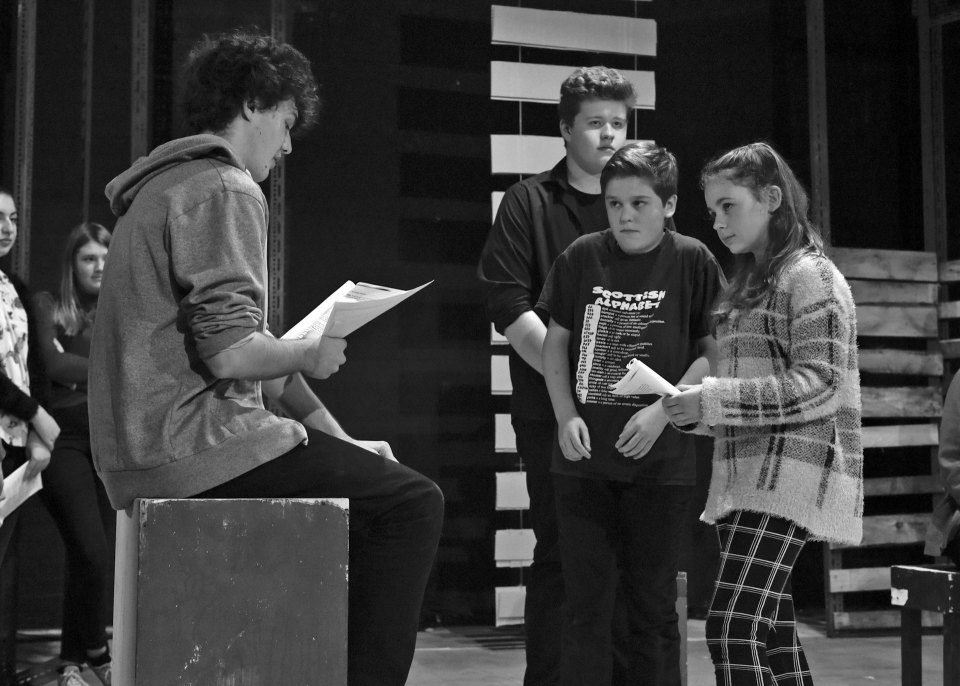
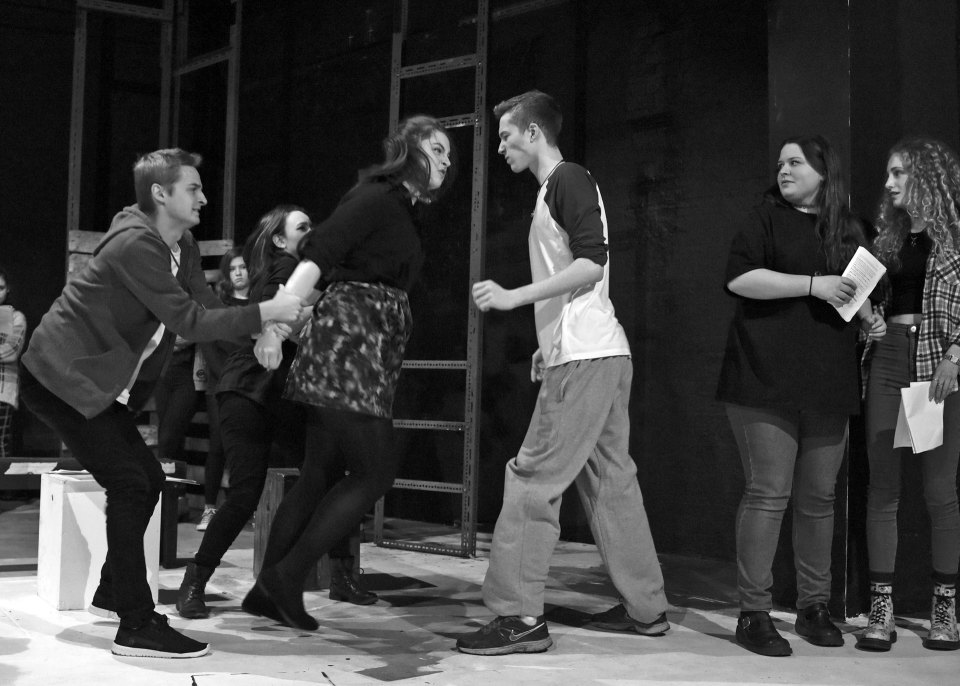
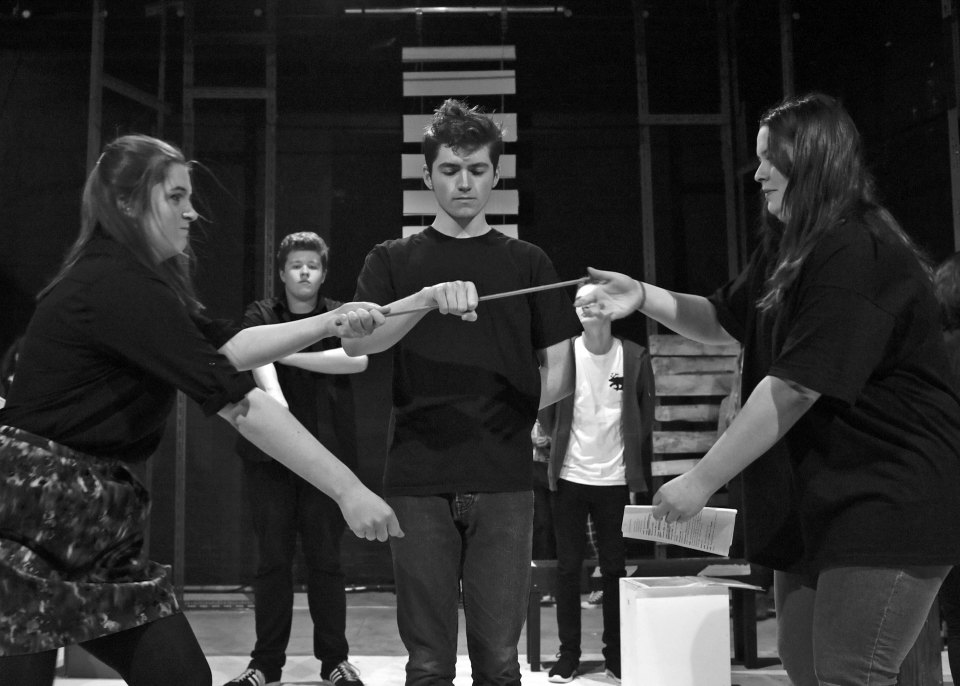
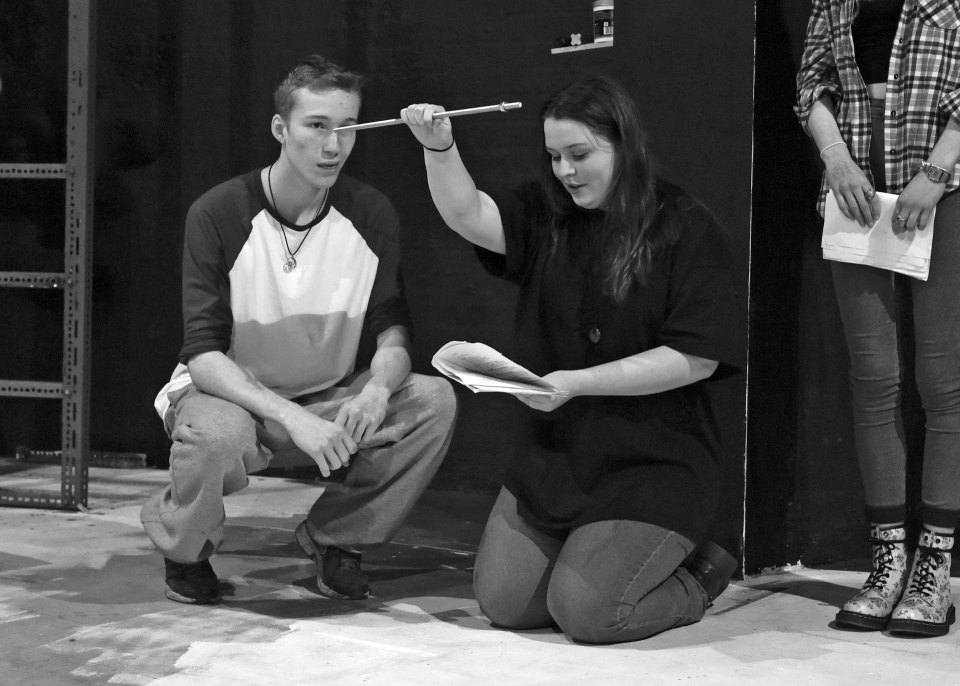
CAST
The Adjutant
Aaron Connelly
Servant | Innkeeper | Spectator
Amara Frearson
Servant | Old Woman | Spectator
Blythe Reaney
Villager | Servant | Narrator | Dancer | Spectator
Eleanor Watson
Villager | Servant | Farmer's Wife | Monk | Rich Farmer | Spectator
Elisabeth Rieley
Servant | Guest | Spectator
Emily Armstrong
Doctor | Servant
Emily Scothern
Arkady Chaidze / The Storyteller | Bandit
Finn Doherty
Soldier | Lavrenti Vashnadze | Shauva
Gareth Ellis
Villager | Soldier | Jussup
George Collier
George Abashvili | Sergeant | Guest | Ludovica
Harris Allen
Doctor | Older Lady | Guest
Jake Booth
Simon Chachava
James Green
Expert | Servant | Villager | Dancer | Spectator
Jessica Gale
The Cook | Bizergan Kazbeki
Kellie Rigby
Servant | Aniko | Rich Farmer | Spectator
Libby Crichton
Servant | Farmer | Old Woman
Mary Kirwin
Villager | Servant | Narrator | Guest | Old Man | Spectator
Meg Garner
Old Farmer | Soldier | Younger Lady
Nick Ford
Prince Kazbeki | Guest | Old Man
Peter Daly
The Horseman | Guest
Poppy King
Villager | Servant | Villager | Mother | Spectator
Rianna Feghali
Soldier
Robert Gadsby
Villager | Soldier | Guest | Azdak
Robert Ryan
Servant | Peasant Woman | Rich Farmer | Spectator
Roisin Kelly
Natelli Bashvili | Guest
Ruth Page
Grusha Vashnadze
Tilly Poynter-Symonds
There are no items to display
THE CAUCASIAN CHALK CIRCLE by Bertolt Brecht
Nottingham Lace Market Youth Theatre
The Caucasian Chalk Circle is a play by German modernist playwright Bertolt Brecht. The play, in a nutshell, is about a peasant girl who rescues a baby and becomes a better mother than its wealthy natural parents. She goes to court to win the baby from the birth mother as well as managing to release herself from a marriage which she had been tricked into and returns to the arms of her former beau, and they live happily ever after.
This strikes me as being a fairly new translation and is a very modern adaptation. I've seen this play before and it was, or so it seemed at the time, a very traditional and faithful version of Brecht's script. Not that this was not faithful, it's just very updated, in my eyes to introduce a younger audience to Brecht's humour. And there is a lot of humour in this play.
Typical of Brecht's "play within a play" we start off with the Prologue to make sure that we are made aware that what we are watching is a story that is being told by the actors who in the play are putting on a play.
You could not, by any stretch of the imagination call this a musical but there is music in the play, and I'm not sure if the music is traditional to the play or it's been composed by Joel Walker who provided the guitar accompaniment to the songs. Either way the music is a good compliment to the play, which by the way was written in 1944, and if the songs were original, a nice showcase of Joel's talents as a musician and songwriter.
Brecht's prolific writing has a very anarchic edge and this is brought out with great affect, and with being anarchic, provides some great over the top comedy moments. One of the young actors that springs to mind who delivered this style to great affect was Nick Ford, along with his sidekick Jake Booth as the two ladies who took to Grusha, the peasant girl, played with great consistency by Tilly Poynter-Symonds.
So many actors involved in this large cast but I can only mention a few that really caught my attention. Our narrator who made sure we did not lose the thread was played by Finn Doherty, Gareth Ellis as Lavrenti, Harris Allen as the foul mouthed and mucky minded Sergeant, and Robert Ryan as the drunken judge, Azdak, who did the right thing in the end.
A very male and macho play but there were plenty of female actors in subservient roles, sixteen in all to the twelve male parts with some of the cast doubling up in lesser roles.
A simple but effective set guaranteed that there were no distractions from the witty, bold and bawdy script. Although modern, the costumes remained faithful to the era of the play, and you could feel that Max Bromley who directed the piece must have had a ball directing this energetic and young group in a play which worked so well for that age group.
It may not be to every one's liking but it is worth going to see and supporting this talented bunch of young actors.
Read the original article here.
Review: The Caucasian Chalk Circle, Lace Market Theatre
During a civil insurrection in a remote peasant country a baby boy is abandoned by its selfish upper-crust mother and looked after by a peasant girl. After two years the mother returns to reclaim the boy but her claim is contested in court by his adoptive mother.
One of the most renowned plays of the last century, Bertholt Brecht’s The Caucasian Chalk Circle represents a challenge for any company. The Lace Market Youth Theatre, under the direction of Max Bromley, rise to the challenge. That is, in all respects but one.
The problem is that, up until the final act, projection and articulation from a lot, not all, of the otherwise splendid cast of twenty-eight are inadequate. This applies not only to the spoken text: the songs, which are important in this play, are not delivered with sufficient confidence and attack.
In the final act, the trial scene – where we get the chalk circle of the title – the problem seems to solve itself. The actors demonstrate how very good they really are. It’s this scene, for instance, where Harris Allen, as the Sergeant, makes his wonderfully oily speech on behalf of his nasty client Natelli.
The play’s protagonist, Grusha, is an excellent Tilly Poynter-Symonds, who is effective throughout, but especially in the encounter by the river with her true love, Simon (James Green). And Ruth Page, as the imperious and greedy Natelli, gives a stand-out performance.
Woven into the deep political intention of the play is a lot of comedy. It’s funny when Jussop (George Collier), supposedly dead, leaps to life; and when he’s being bathed by the unwilling Grusha. And the grasping avarice in the play, peasant as well as aristocratic, is also blackly amusing.
Even those already familiar with the work might gain new insights from this production.
Read the original article here.

